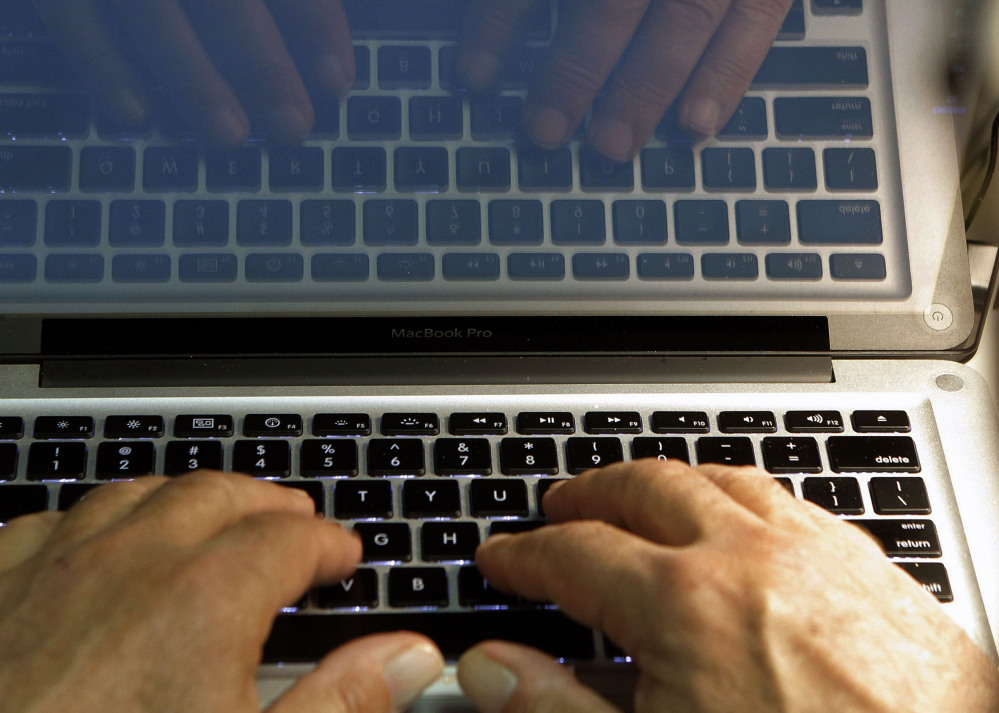I’ve logged on to Facebook on many occasions to find people pondering what on earth caused the polarization in our country. What is dividing the United States of America?
Like clockwork, the concerned Facebooker’s friends sympathetically respond by making serious suggestions. Maybe it’s the mainstream media. Others say Donald Trump. Some claim it’s the liberals. Lately, it’s disinformation campaigns from Russian trolls. Many just chalk it up to general “fake news.”
Of course, you could make an argument that many of these suggestions do play a role in the division. But mass media existed before we saw such stark polarization, as did political parties, foreign intelligence influencing elections, and disinformation in general.
And while Donald Trump is an extremely polarizing figure, I’m not so sure even he specifically addresses what wedges people apart.
But he may have used the true culprit to his advantage, 280 characters at a time. The irony is, people worriedly ponder this question with rightful concern on the very vehicle that may have created this level of madness: social media.
Fifty-nine percent of all shared links on social media in 2016 were never even clicked on by the person sharing. Once-trusted media outlets are often described as “fake news,” presumably in favor of Twitter accounts, memes, and actual junk news. ABC, CBS, and NBC unfortunately lend some credence to the claim, as they devoted just 32 minutes to examining actual policy issues during the week leading up to the presidential election, I suspect to keep up with the hunger for junk news perpetuated by social media itself. Objective reality receives a daily slap in the face as fairy tales of Hillary Clinton running pedophilia rings out of the basement of a pizza shop, “false flag” claims to haplessly explain why the MAGA bomber couldn’t possibly be a real Trump supporter, and other wild right-wing conspiracy theories get shared regularly, including by prominent, popular social media accounts — even the president himself to his millions of Twitter followers.
Studies have shown confronting nonsense with facts often doesn’t even solve the problem — it merely makes the junk-news believer dig in deeper. It only makes their convictions stronger, despite being based on an alternate reality.
When you have someone pointing out objective reality — who obviously shouldn’t be the one to budge — and a person dead set on believing disinformation so as not to contradict their own bias, can this not explain the increased division in this country?
What are we supposed to do? Humankind is not wired for this level of mass communication or for effectively processing this onslaught of content. We, after all, evolved as hunter-gatherers communicating in small groups. The human psyche craves stories that have violent, gross, sexual content along with humiliating, embarrassing or offensive gossip. On social media, users can find such stories in abundance to “prove” whatever bias they had in the first place. With instantaneous connection to billions, it’s not hard to find like-minded people who tickle their confirmation bias in the virtual echo chamber. Meanwhile, traditional news outlets struggle to keep up with the tsunami of junk news, or worse, begin to mirror social media itself.
Political discussions and debates these days are rarely about actual policy of any given political candidate. The reactions on social media are rarely grounded in knowledge or expertise on a subject. For example, for those of us who subscribe to reality, how utterly disheartening is it to see articles about the dangers of global warming shared by local newspapers and TV stations only to be greeted by “Angry” and “Haha” reactions from people who haven’t even clicked on the article, let alone spent an hour, much less their lives, studying the danger of climate change? It’s truly maddening to witness ordinary people with zero expertise combat the life’s work of environmental scientists using little yellow emoticons to “laugh” at their work.
People of the world must come to terms with what it means to discuss politics on their social media accounts. Indeed, these are uncharted waters; we’re living in a unique time where anyone with an email address can seemingly weigh in on incredibly complex matters, offer their two cents, and ultimately spread dangerous falsehoods to potentially millions of people with the click of a button.
It’s often been claimed that with the dawn of social media everyone is a celebrity.
But I’d argue that as the political and social media worlds collide, everyone is a journalist — a journalist, that is, with zero accountability in terms of journalistic norms and laws coupled with a potentially enormous audience.
It’s high time to act with far more responsibility. And if we can’t handle it as citizens, I fear it might be time for social media tycoons to reevaluate online free speech in the 21st century.
Sam Shain, of Hallowell, is a musician and an English teacher.
Send questions/comments to the editors.


